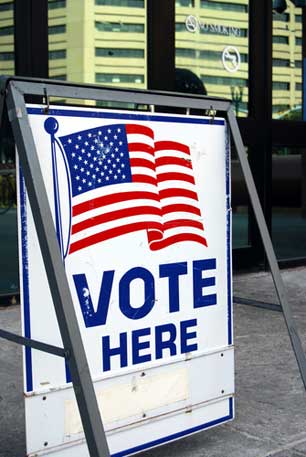Just hours after the Supreme Court declared Section 4 of the Voting Rights Act unconstitutional in June of this year, Texas Attorney General Greg Abbott announced the state would move forward in implementing a voter ID law widely expected to institutionalize discriminatory barriers to voting for people of color in the state.
But the law is now being challenged by civil rights groups including the NAACP, the Brennan Justice Center and the Mexican American Legislative Caucus of the Texas House of Representatives, which filed a lawsuit in a federal court in Corpus Christi Tuesday.
The suit argues the voter ID law violates the 14th and 15th Amendments to the U.S. Constitution and Section 2 of the Voting Rights Act — which was not struck down by the Supreme Court — because it was enacted to specifically exclude people of color from voting in the state.
Section 4 of the Voting Rights Act was a key provision of the law which determined which states must receive preclearance from the Department of Justice or a federal court in Washington before making any changes to voting procedures, including redistricting. By declaring Section 4 of the Act unconstitutional, the court invalidated Section 5, which laid out the preclearance requirement.
Before the Supreme Court struck down this preclearance requirement for states with a history of racial discrimination at the polls, a federal court in Washington, D.C., had blocked the very same voter ID law in Texas under Section 5 of the Voting Rights Act just last year, saying the law “imposes strict, unforgiving burdens on the poor, and racial minorities in Texas are disproportionately likely to live in poverty.”
Attorney General Eric Holder and the Obama administration filed suit to stop the law’s implementation following the states’ move to enact the law in the aftermath of the Supreme Court decision.
The Law Offices of William Bonilla is among the firms representing the civic groups in the lawsuit. William Bonilla, a retired attorney with more than 60 years of experience, told Truthout in a telephone interview that he grew up in a segregated school and had to overcome many barriers to go to college at Baylor University and then on to law school. He moved to Corpus Christi in 1953 and became the national president of the League of United Latin American Citizens in 1965 and fought for the elimination of the poll tax in Corpus Christi.
“With people that are born in this country, we beg them to register to go vote, then we beg them to go vote on radio and television,” he said. “It’s difficult to get the minorities to go vote, especially hispanics, so what does the legislature do but pass another obstacle.”
Texas already requires voters to show a state-issued voter registration card at the polls. If a Texas voter does not have their registration card, they provide a valid driver’s license, a photo employee ID, a passport, utility bill, bank statement or paycheck. If they don’t have any of these forms of ID, a voter can sign an affidavit swearing their identity under penalty of perjury. The new law requires a driver’s license, state-issued ID, passport or concealed handgun permit only.
The Supreme Court’s decision striking down Section 4 of the Voting Rights Act also paved the way for Texas Republicans’ gerrymandering tactics, which voting rights advocates have decried as racist. In 2011, Republican majorities in both houses of the Texas legislature redrew voting districts, and when Section 4 was ruled unconstitutional, the plan was no longer subject to the federal preclearance requirements.
But the Justice Department, in a preliminary investigation, found that the redistricting map seems to have been “adopted, at least in part, for the purpose of diminishing the ability of citizens of the United States, on account of race, color, or membership in a language minority group, to elect their preferred candidates of choice to Congress.”
“Multiple courts have ruled that Texas has expressed a pattern of discrimination toward its growing minority demographic — from its cumbersome voter identification requirements to its penchant for drawing intentionally discriminatory legislative maps — and I expect that the courts will once again side with Texas voters over hyper-partisan lawmakers,” said State Rep. Trey Martinez Fischer, chairman of Mexican American Legislative Caucus, in a press release. “The right to vote is the cornerstone of our democracy. Unfortunately, we continue to find ourselves in federal court defending this most basic right against Texas’s leadership.”
Texas is currently experiencing a sweeping change in demographics that threatens to displace the GOP’s historical dominance — if the current challenges to the voter ID law are successful, that is.
Join us in defending the truth before it’s too late
The future of independent journalism is uncertain, and the consequences of losing it are too grave to ignore. We have hours left to raise the $12,0000 still needed to ensure Truthout remains safe, strong, and free. Every dollar raised goes directly toward the costs of producing news you can trust.
Please give what you can — because by supporting us with a tax-deductible donation, you’re not just preserving a source of news, you’re helping to safeguard what’s left of our democracy.
